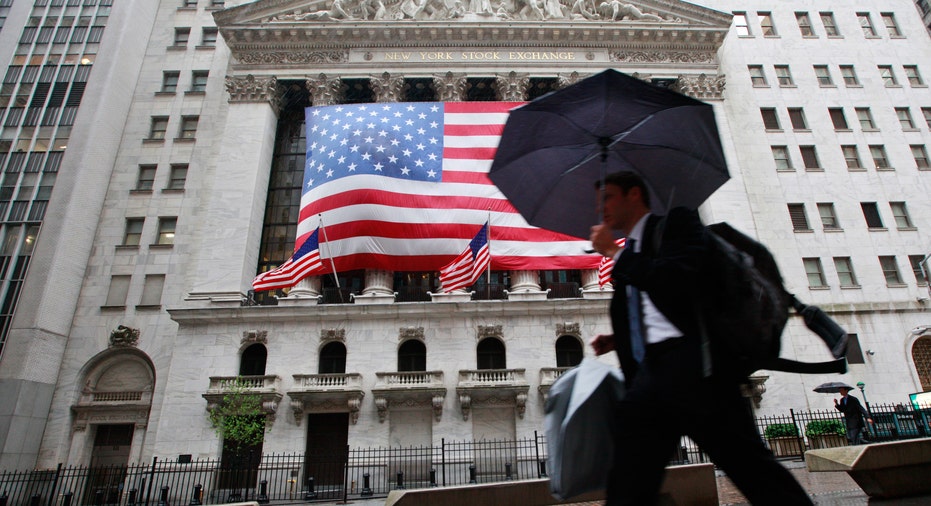Stressed-Out Bankers Wrestle with Relentless Regulation

It’s little surprise that financial-services companies are feeling the heat from the regulatory spotlight in the wake of a global financial crisis caused in part by lax oversight.
But a new report reveals just how high up the executive agenda compliance has rocketed and suggests lingering regulatory uncertainty is taking its toll.
Almost half of the 400 global clients surveyed by SunGard believe that regulatory change has caused a loss of focus on core businesses due to allocating more staffing, time and resources to compliance over the past two years. Additionally, 34% of the firms surveyed expect lower returns to shareholders as a result of the focus on compliance.
“Overall, the picture is one of great uncertainty. Regulatory reform is putting the financial services industry under intense pressure, and the situation will not change in the near future,” the SunGard report concludes.
It’s not just that increased supervision is limiting risky activities. Executives are grappling with the uncertainty surrounding a long list of constantly-changing regulatory regimes being phased in by U.S. and overseas authorities.
Laundry List of Regulations
The litany of international reforms that banks are tackling is highlighted by the Dodd-Frank Act. While this U.S. reform package was enacted in 2010 as a response to the financial crisis, legal challenges continue today and many rules still need to be written, let alone implemented.
There's also Basel II, a global reform of bank capital and supervision rules that was implemented in 2006 and updated four times between 2007 and 2009.
“I just wish they’d stop so we could let this work its way through the system to see what happens. It’s just getting so complex."
Other major reforms being digested include the U.S. Foreign Account Tax Compliance Act, the European Union’s Alternative Investment Fund Managers Directive and the Financial Stability Board’s list of Globally Systemically Important Insurers.
There are at least another five pieces of international reform that have not yet been implemented, including Basel III, which is due to be enacted in 2019. There's also global derivatives regulation that is still being negotiated over how to monitor the $700 trillion over-the-counter derivatives market, the EU’s Markets in Financial Instruments Directive II, the Solvency II Directive and the G20 Financial Transactions Tax.
“Whether you are a domestic bank or a foreign bank, life is tough,” said Ernie Patrikis, a partner at White & Case. “I just wish they’d stop so we could let this work its way through the system to see what happens. It’s just getting so complex.”
Mounting Regulatory Stress
Almost 43% of executives in the SunGard survey said regulatory change is the most pressing issue facing their organization, second only to market volatility. Nearly 46% of executives believe their companies are under “high stress” due to regulatory change and another 40% characterize it as “moderate stress.”
And the problem isn’t expected to go away. About 79% of executives believe their companies will still face at least moderate regulatory stress two years from now.
“It feels like a continuous wheel of change, and that’s our area of concern -- it is difficult to know when we will ever reach the end of the evolution,” Debbie Candlish, regulatory development manager at AXA U.K., said in the SunGard survey. The poll was conducted last year and included senior executives from insurers, asset managers and banks around the world.
Regulators have given companies years to comply with new rules, but few wait for the deadline due to concerns they could lose clients.
“If 12% capital adequacy is good in three years, I want to do business with the first bank that gets there, not the last bank,” said Patrikis.
The stress is being felt by a wide range of executives and management. The survey found that just over 50% of CEOs were “highly stressed” by regulatory change and another 37% were “moderately stressed.”
Other positions with high levels of regulatory stress include board directors, chief financial officers, chief operational officers and chief risk officers. Plus, almost 40% of chief compliance officers are believed to be highly stressed by these issues.
“I think the most dangerous position in a commercial bank today is compliance officer. You don’t get praised when everything goes well and you get blamed when it goes wrong,” said Patrikis, a former general counsel at the New York Fed.
Overreaction or Proportionate Response?
In many cases, chief compliance officers are responsible for creating cultural changes inside organizations, which is quite a different job description from what many originally signed up for.
About one-third of respondents in the SunGard survey believe regulatory change will trigger lower shareholder returns, while 27.5% believe it has limited their company’s ability to grow.
“It’s taking its toll on organizations,” said Jeffrey Wallis, president of SunGard Consulting Services. “The definition of regulatory risk has grown and is seeping beyond just reporting data into operational control, technology change and things that effect day-to-day operations.”
Given the damage done by the financial crisis, executives can hardly claim to be caught off guard by the response from regulators hoping to avoid another meltdown or fresh round of bailouts.
It’s also clearly in the interest of shareholders for banks and insurers to be encouraged to curtail the risky activities that sparked the last financial disaster.
Still, 35% of executives surveyed believe the global response has been an overreaction to the crisis, compared with 18% who think the response has been proportionate. SunGard said 53% of executives complain the pace of regulatory change has been so rapid that businesses haven’t had sufficient time to prepare.
“The industry feels there should be regulation. This is the most receptive I’ve ever seen organizations to regulatory change in my career,” said Wallis. “What they’re looking for is some level of balance and measured approach so the business client is not severely or dramatically hindered.”



















